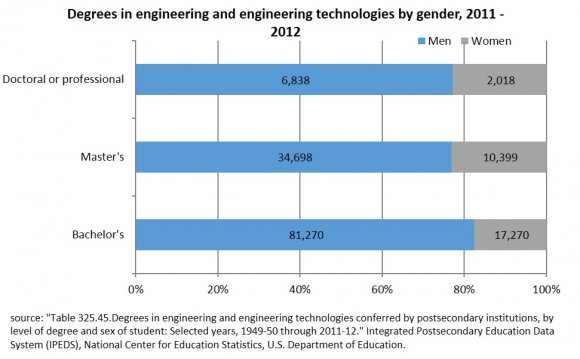
In general, programs in agricultural engineering incorporate the fundamental principles of biological science and engineering and apply them to the design of agricultural machinery, management of natural resources and development of agricultural products. Students in these programs may be able to choose an area of concentration or focus on a research project. Lab work is common in all programs, and research is particularly critical in both master's and doctoral programs.
The entry-level academic requirement for most aspiring agricultural engineers is a bachelor's degree, while a master's or doctoral degree could lead to career advancement or work opportunities in private research and academia.
- Program Levels in Agricultural Engineering: Bachelor's degrees, Master's degrees
- Prerequisites: High school diploma or GED, background in biology, chemistry, physics, math and English for the bachelor's program; a bachelor's degree in biology and agricultural engineering and background in math, chemistry and physics for the master's program; a master's degree in engineering and background in engineering statistics, thermodynamics, engineering design and fluid mechanics for the doctoral program
- Program Length: 4 years for the bachelor's program; 30 credit hours for master's; 3-4 years for the doctoral program
- Other Requirements: Thesis required for most master's programs
Bachelor of Science in Agricultural Engineering
A bachelor's degree program in agricultural engineering teaches students how to apply engineering principles to solve problems and improve practices within the agricultural production and processing industry. Students explore soil and water conservation, fluid power systems, off-road machinery and systems optimization. In addition to the core agricultural engineering curriculum that covers the breadth of the discipline, most programs allow students to choose an area of emphasis, such as natural resource management, machinery systems or structural systems.
Program coursework includes classroom lectures and hands-on exercises that allow students to apply concepts and principles to generate solutions to real-world problems. Common topics incorporated into the curriculum include:
- Electric circuits
- Thermodynamics
- Engineering design
- Natural resource engineering
- Agricultural machinery
Master of Science in Agricultural Engineering
A master's degree in agricultural engineering provides advanced study in mathematical and scientific principles that can be used to solve agricultural problems and improve agricultural processes. Students learn how to conduct laboratory research and perform computer simulations to gather the data needed to present and implement viable solutions. Most programs include a thesis component. Students can expect this type of program to require two years to complete.
Program coursework is comprised of approximately 30 credit hours. In addition to specialized courses in the concentration of choice, students are often required to complete courses in research methodology, advanced math and statistics. Graduate-level coursework may include:
- Biological materials
- Air pollution
- Biological system controls
- Sustainable agriculture
- Food engineering
Ph.D. in Agricultural Engineering
Ph.D. programs emphasize the importance of agricultural problem recognition and analysis. Students are required to declare a specialty area of focus for independent study and research. Examples of common specialties include food process engineering, machine systems engineering and natural resource engineering. Students must conduct independent research or design a project in order to complete the dissertation component. A Ph.D. program usually takes 4-5 years to complete.
Program requirements include formal coursework, seminars and independent study in a chosen specialty. In addition, core study topics include:
- Engineering instrumentation
- System modeling
- Simulation
- Research methods
Popular Career Options
Graduates of a master's degree program are eligible for a variety of job opportunities, including those in research and development. Possible job opportunities include:
- Consulting engineer
- Agricultural design engineer
- Researcher
- Conservation scientist
- Food engineer
Individuals who have completed a Ph.D. program in agricultural engineering have the expertise needed to educate future engineers within the field and conduct a variety of research relevant to the agricultural industries. Possible positions include:
- University faculty member
- Consultant
- Research director
Employment and Salary Information
Graduates with a bachelor's degree are prepared for a wide array of entry-level positions in agricultural production, alternative energy and resource management. The U.S. Bureau of Labor Statistics (BLS) reported that the median annual income for agricultural engineers was $71, 730 in May 2014. According to the BLS, predicted employment opportunities for agricultural engineers will grow by 5% between 2012 and 2022.
RELATED VIDEO











